BUS707 Research Report: Information Technology in Accounting
VerifiedAdded on 2023/04/26
|8
|1072
|477
Report
AI Summary
This research report evaluates the significance of information technology (IT) in contemporary accounting systems. It addresses the research problem of inadequate previous studies on IT implementation in accounting, aiming to provide recommendations for businesses. The research objectives include clarifying the relationship between IT and accounting, identifying favorable factors for IT implementation, and understanding the benefits of IT adoption. Key theories explored include Information Technology, modern computer-based accounting systems, and the impact of IT on accounting. The research employs an experimental method with a deductive approach, utilizing both qualitative and quantitative data collected through questionnaires and online surveys from a sample of 150 firms in Australia. Ethical considerations, including anonymity and informed consent, are prioritized, and the Cronbach’s Alpha Test will be used to ensure data effectiveness. The report concludes with a comprehensive analysis aimed at enhancing the understanding and effective utilization of IT in accounting systems for various business firms.
1 out of 8
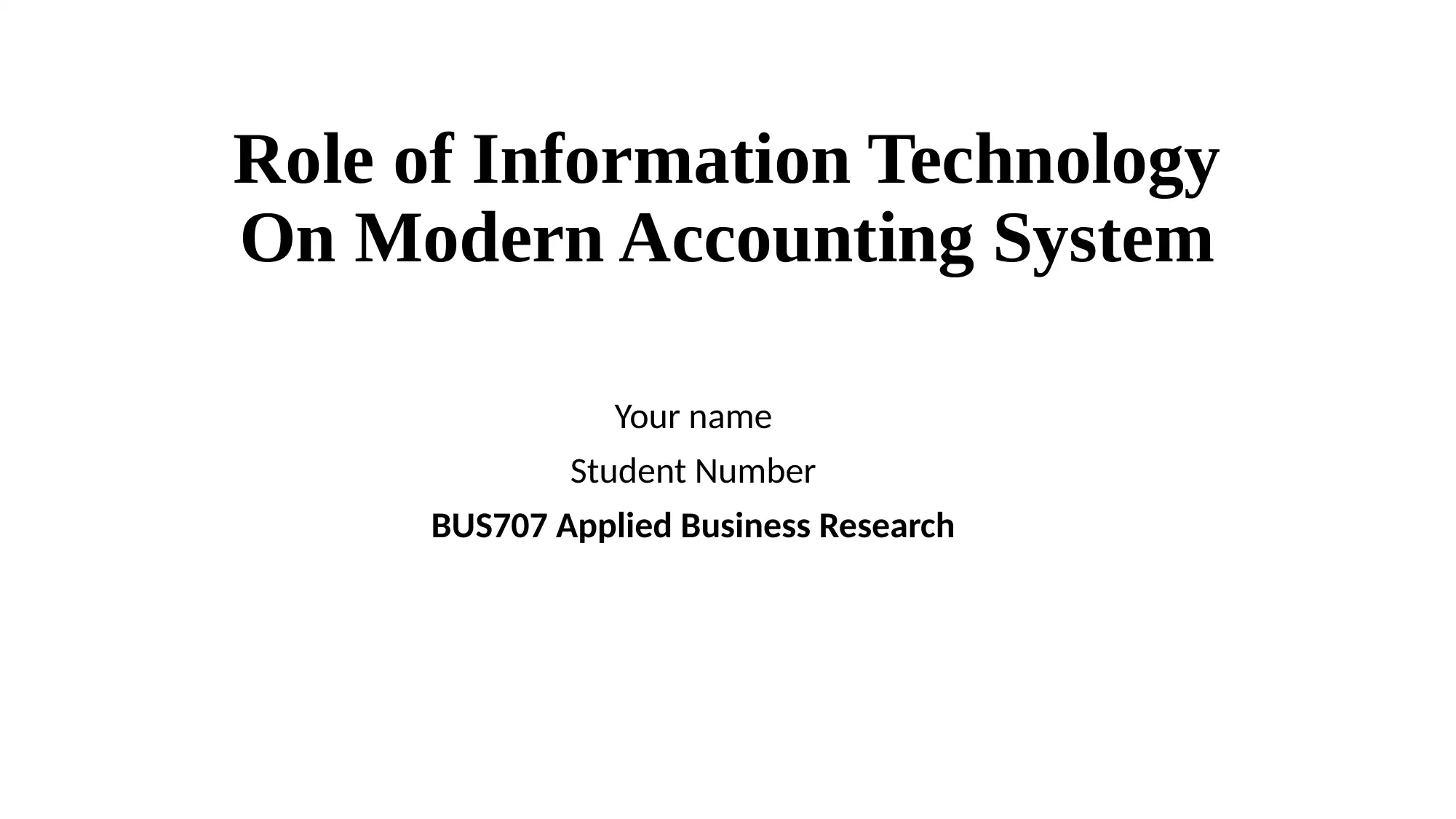
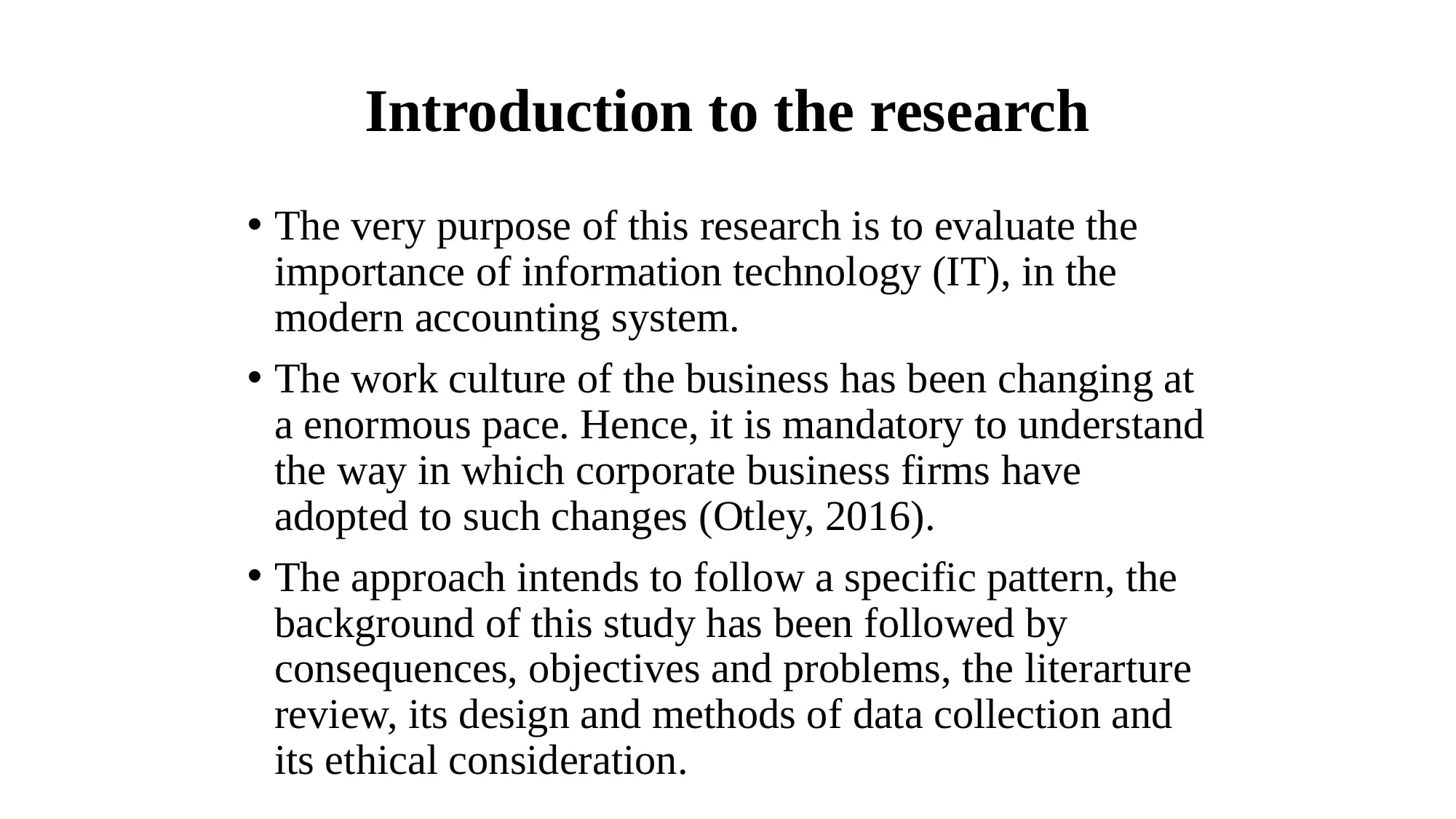
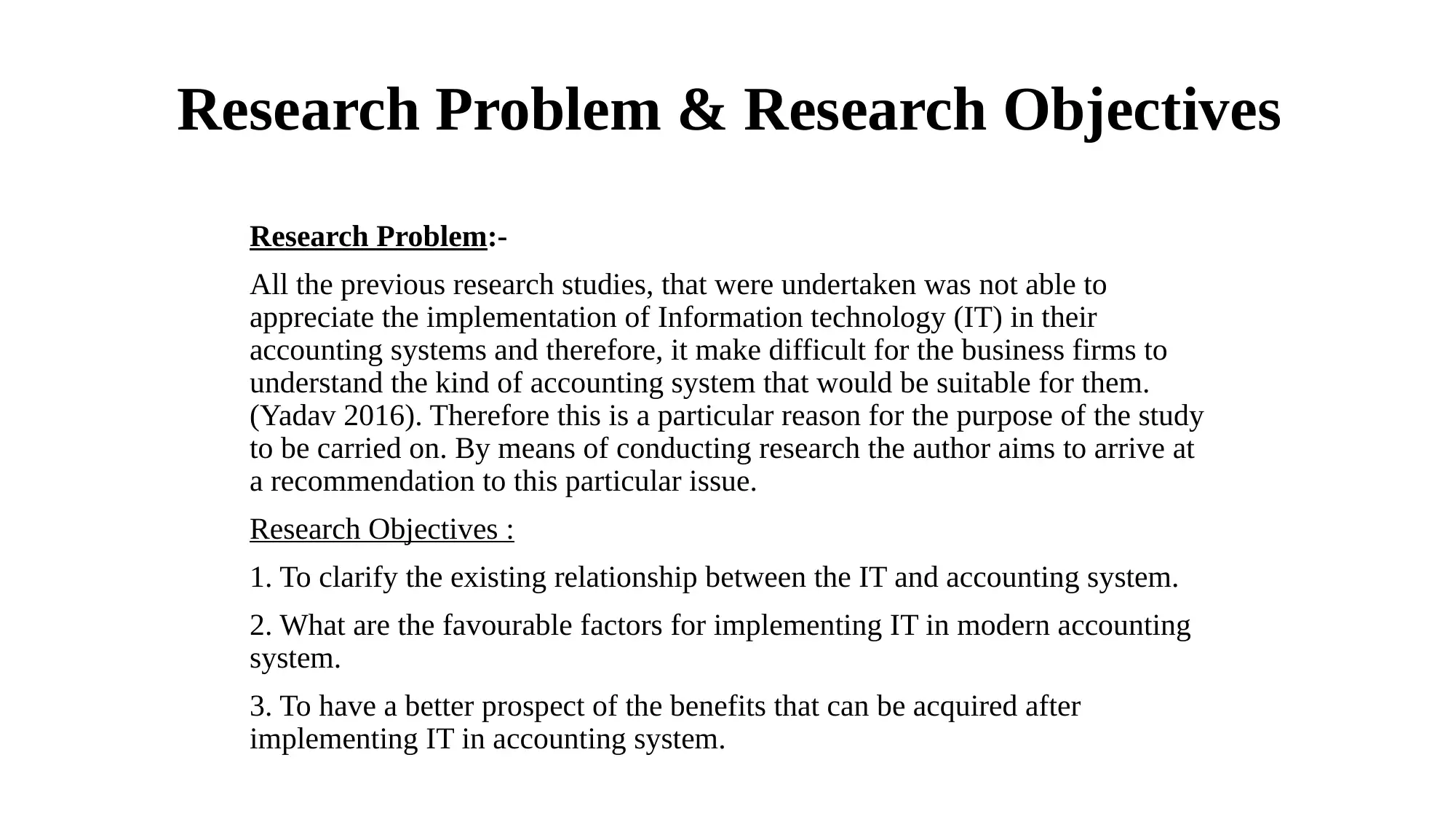

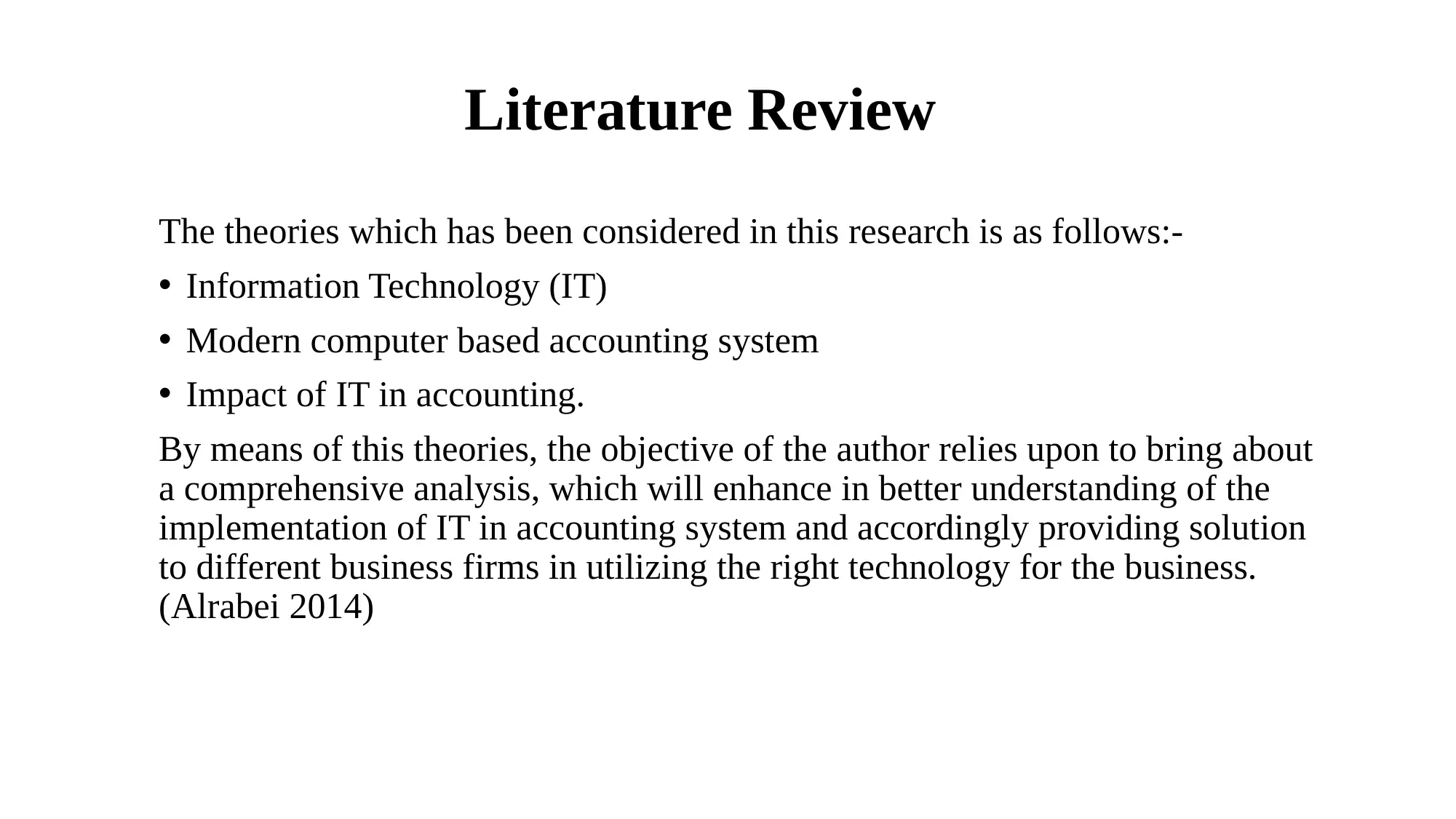
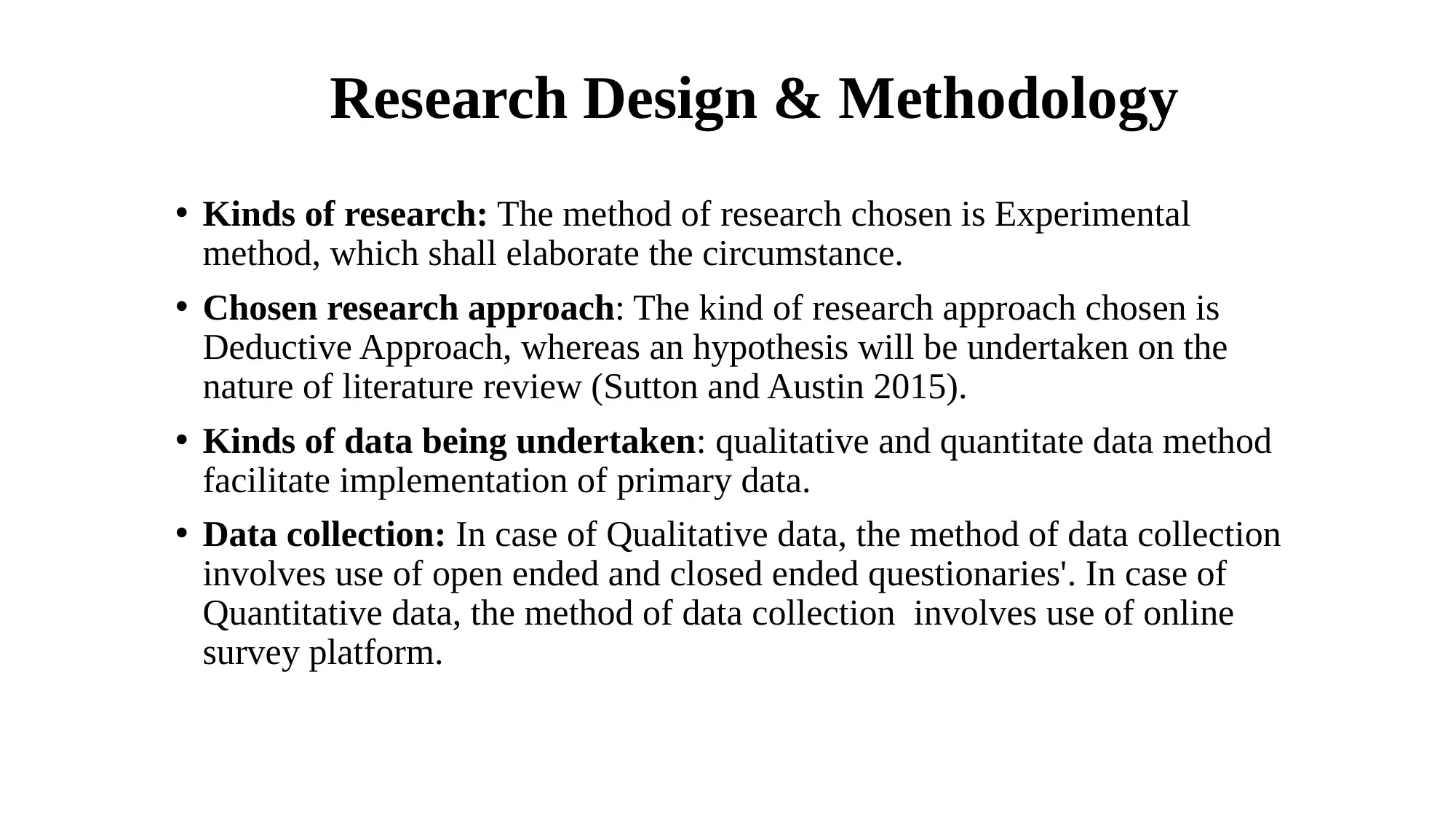
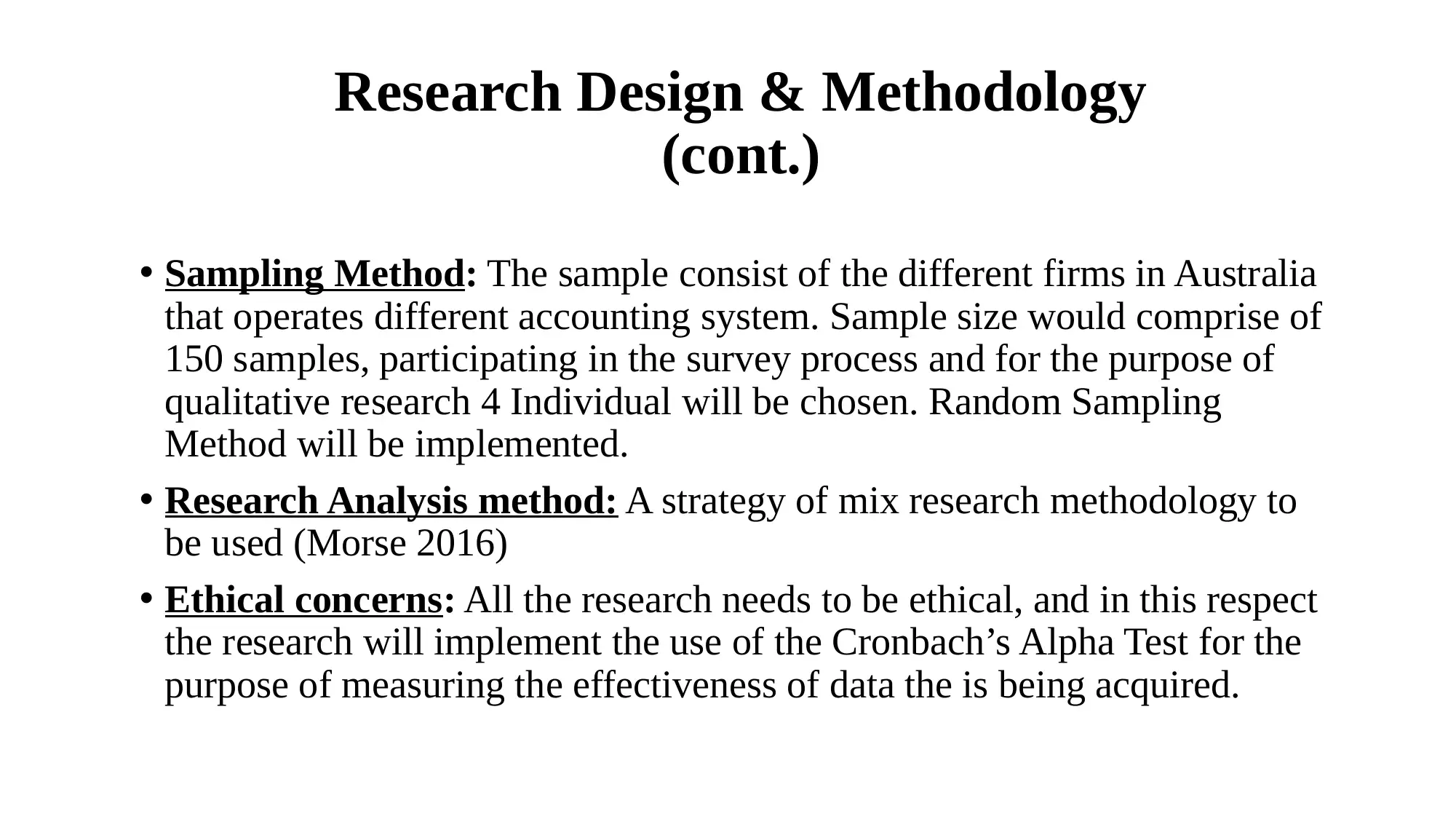
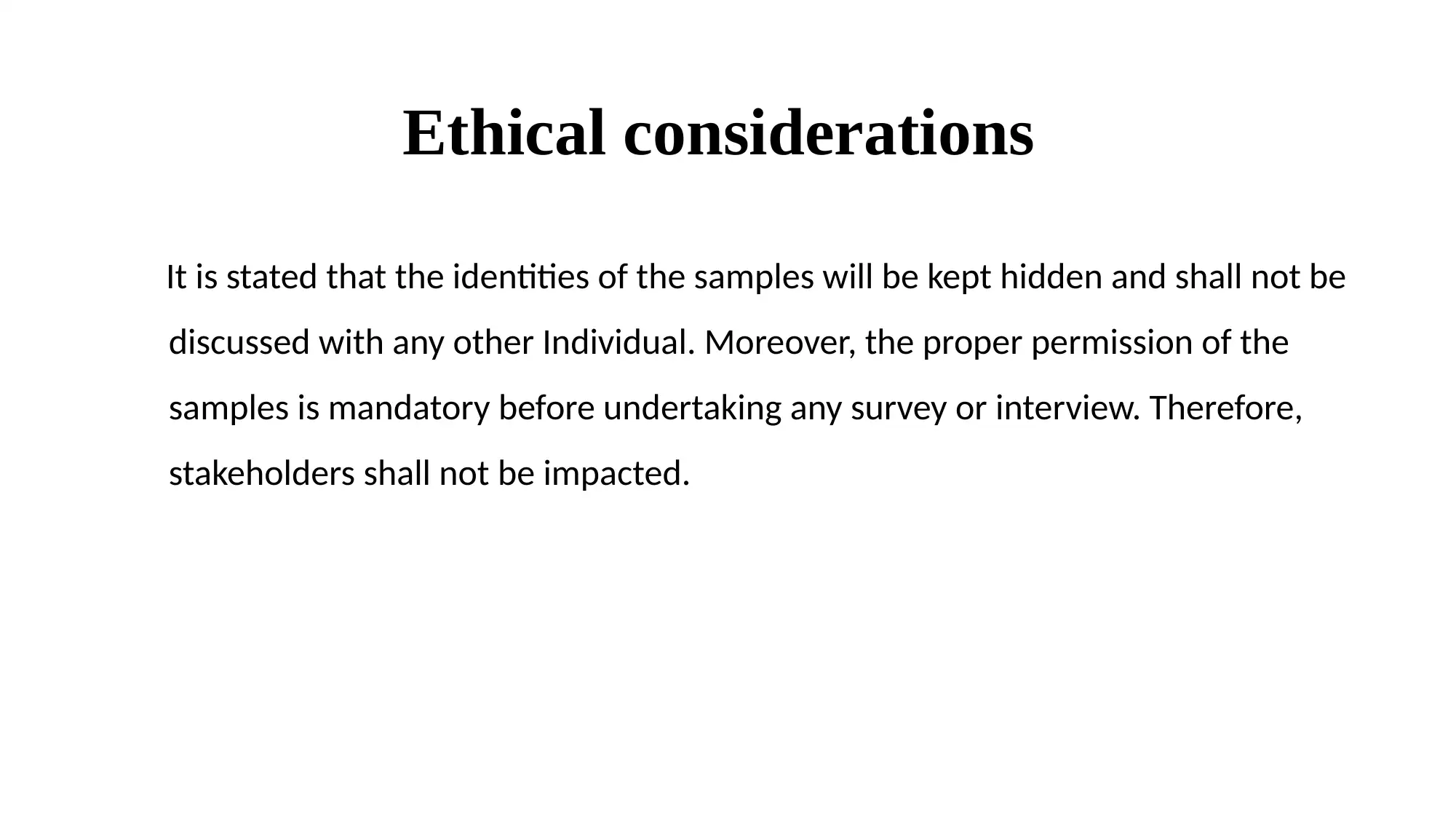
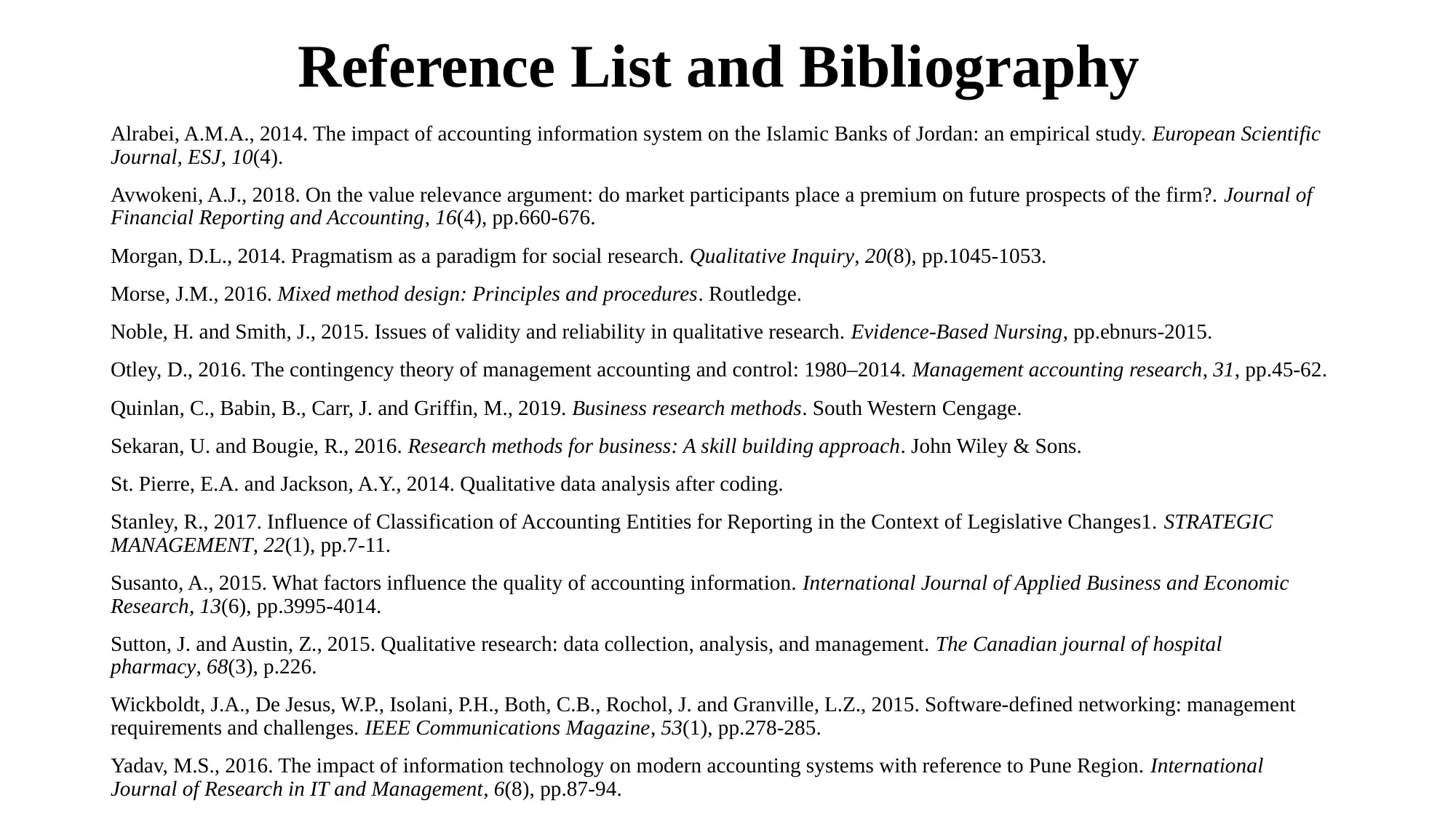






![[object Object]](/_next/static/media/star-bottom.7253800d.svg)